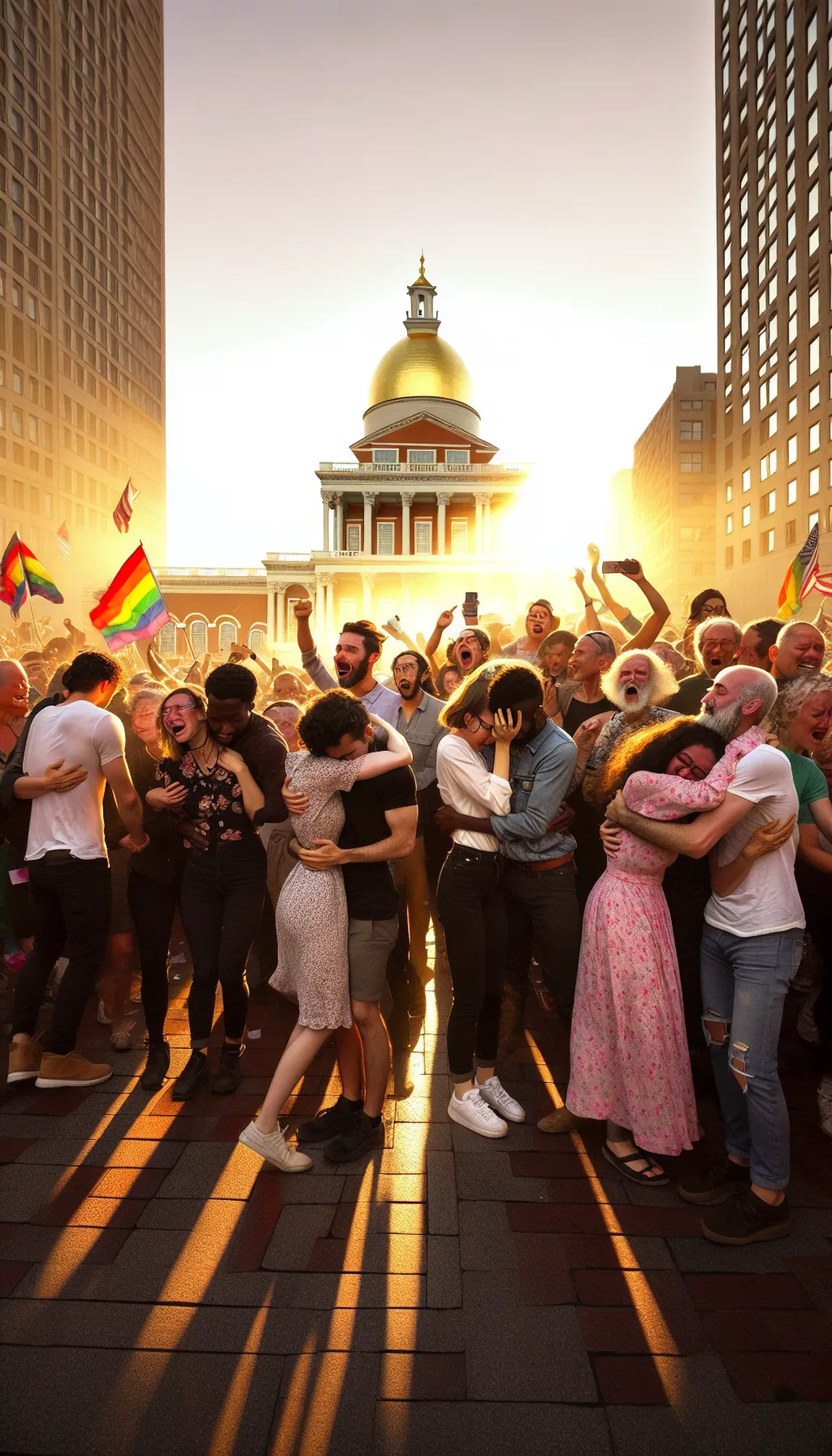United States – Love Wins: The Day Massachusetts Made History - 2004
TLDR;
- Historic Moment: On May 17, 2004, Massachusetts became the first U.S. state to legalize same-sex marriage, marking a pivotal moment in the fight for LGBTQ+ rights.
- Legal Backdrop: The Massachusetts Supreme Judicial Court’s November 2003 ruling declared the state’s ban on same-sex marriage unconstitutional, setting a 180-day deadline for compliance.
- Cultural Impact: The event was a significant cultural shift, celebrating love and equality, and inspired nationwide movements leading to the 2015 U.S. Supreme Court decision legalizing same-sex marriage across the country.
- Legacy: Despite opposition, Massachusetts’ decision was a cornerstone in the journey toward marriage equality, demonstrating the power of love and perseverance in shaping history.
–
Story
The air was electric with anticipation on May 17, 2004, as couples gathered outside city halls across Massachusetts. Shortly after 9:00 a.m., when city offices opened, history was made. For the first time in the United States, same-sex couples were legally allowed to marry. Cheers erupted, tears flowed, and the world watched as Massachusetts became a beacon of hope and equality.

The journey to this momentous day was fraught with challenges. It began with a groundbreaking ruling by the Massachusetts Supreme Judicial Court in November 2003, which declared that the state’s ban on same-sex marriage was unconstitutional. The court gave the legislature 180 days to comply, not necessarily to act, declaring that the existing marriage laws must include same-sex couples. As the deadline approached, the reaction was mixed across the nation.
The decision was not just a legal victory; it was a profound cultural shift. For many, it was a validation of love and commitment that had long been denied. The images of jubilant couples exchanging vows and rings were broadcast worldwide, igniting a movement that would eventually lead to nationwide recognition of same-sex marriage.
This turning point was not without its opponents. Opposition was strong, including attempts to amend the Massachusetts Constitution to ban same-sex marriage (which failed in 2007). However, the ruling itself was not overturned. Massachusetts had set a precedent, and the dominoes began to fall, leading to the U.S. Supreme Court case Obergefell v. Hodges in June 2015, which legalized same-sex marriage across the United States.
The courage of those who stood up for their rights in Massachusetts paved the way for millions. Their love and determination changed the course of history, proving that love truly knows no bounds.
–
| Would a different ruling in Massachusetts have changed the course of marriage equality in the U.S.? |